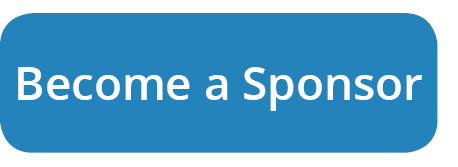
We are excited to announce the final two series of our inaugural season of ScholarStream. These two series will provide fabulous learning opportunities in the leadup to Shavuot as we conclude this season and break for the summer. We will use the time to plan our full next season of ScholarStream spanning from Selihot to Shavuot 2022, with information coming out over the summer, so stay tuned!
The next two series will be at the following dates and times. Session descriptions are coming soon.
The Schechter Institutes - From Sorrow to Joy: The Spring Holidays
All 4 classes will take place on Tuesdays at 1:00 PM ET/10:00 AM PT.
April 6: Yom Hashoah
“Memory and Commemoration in the Development of Yad Vashem"
Prof. Doron Bar, President, The Schechter Institute of Jewish Studies
April 13: Israel’s Memorial Day and Independence Day
“From Sorrow to Joy: the transition from Yom Hazikaron to Yom Haatzmaut”
Rabbi Dr. Reb Mimi Feigelson, Mashpiah Ruhanit and Senior Lecturer, Schechter Rabbinical Seminary
April 27: Lag Ba’omer
“Why Do We Celebrate Lag Ba’omer and How?”
Rabbi Prof. David Golinkin, President, The Schechter Institutes, Inc.
May 4: Yom Yerushalayim
“Jerusalem Built Up - A City Knit Together” (Psalm 122:3): How does Jerusalem unite the Jewish people?
Rabbi Chaya Rowen Baker, Lecturer, Schechter Rabbinical Seminary
Collaborative Series:
All four classes will take place on Wednesday evenings (April 21, April 28, May 5 and May 12) at 8:00 PM ET/5:00 PM PT.
What should Zionism look like in an era of a confident and strong Jewish state? Can the various flavors of Judaism’s enduring focus on the Land of Israel translate into a new Zionist ethos? Join JTS, the RA, the Schechter Institutes and Ziegler for a collaborative ScholarStream series, in which teachers representing each institution will explore these and other questions—re-examining some of Zionism’s key ideas, moments, and challenges, from its earliest origins and into the 21st century.
April 21: Zionist Thought: Classical Theories and Current Dilemmas (JTS)
Dr. Arnold M. Eisen, Professor of Jewish Thought and Chancellor Emeritus, JTS
The classical theories of Zionism and the responses to them, in all their political, religious, and cultural varieties, continue to play out in the State of Israel today. As Israel reckons with the outcome of its most recent elections, Professor Eisen will consider what has changed since the days of Herzl and Ahad Ha'am and what has not.
April 28: Everywhere I Go! Affirming our Rootedness in Zion and the Earth (Ziegler)
Rabbi Dr. Bradley Shavit Artson, Abner and Roslyn Goldstine Dean's Chair, Ziegler School of Rabbinic Studies
As Jews, we have a special connection to the Land of Israel. As humans, we have a bond to the entire planet. Let’s look at Jewish sources that ground us in our particularity (Israel) and our universalism (Earth) and enjoy the prism of light made possible by both focuses. Download the Sourcesheet
May 5: Religion and State in Israel: A Zionist Dilemma (Schechter)
Rabbi Prof. David Golinkin, President, Schechter Institutes, Inc.
It is no secret that both Israelis and Diaspora Jews spend a lot of time fighting about Religion and State issues in the State of Israel, from Shabbat to Kashrut to conversion to women serving in the army. In this lecture, we will survey some of the different models that have been proposed, from the theocracy championed by Chief Rabbi Isaac Herzog to Prof. Yishayahu Leibowitz’s separation of religion and state. I shall then present my own solution to untying this Gordian Knot.
May 12: Peoplehood, Pluralism, and the Meanings of Zionism for Diaspora Jews Today (RA)
Rabbi Lauren Berkun, Vice President, Rabbinic Initiatives, Shalom Hartman Institute of North America
This session will explore the complexity of Jewish peoplehood today and the challenge of competing values as Diaspora Jews wrestle with their relationship to Israel.
If these times do not work for you, these sessions will be recorded.
Sponsorship pricing is $100 per series for congregations up to 399 members, and $200 per series for 400 members and over (congregations can sponsor both series for $150/$300). Individuals can sign up at a cost of $25 for the series. Some communities may choose to stay on following the formal session for a follow up discussion led by their rabbi.
Sponsorship deadline is April 20th. All sponsoring congregations will receive a discount code to send to their congregants to sign up for free. Congregants must sign up individually for the sessions – registration will be available soon.
If you have any questions, please email Max Arad at marad@rabbinicalassembly.org.


